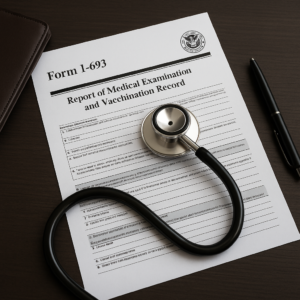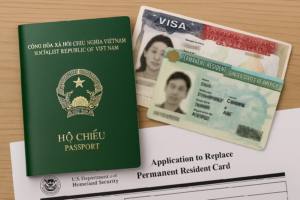It is often misunderstood that those who enter the United States on a B-1/B-2 Visitor Visa and granted a 6 month stay are allowed to leave the United States, re-enter and be granted another 6 months upon re-arrival. While there may be reasons why this is acceptable, and many visitors who have done so may not have encountered any issues, frequently applying for reentry could result in the visitor being denied entry into the United States if the Customs and Border Protection (“CBP”) Officer determines that the visitor does not have “non-immigrant intent” – but rather “immigrant intent.” Proving non-immigrant intent is the number one requirement for eligibility to enter the United States as a visitor, and consecutive long periods of stay are indicative of more permanent intent to stay in the United States.
Visitors who arrive in the United States for long-term visits (up to 6 months at a time) with short gaps in between each visit may have more difficulty proving non-immigrant intent and have a higher risk of having their B-1/B-2 Visitor Visas revoked by a CBP Officer and sent back to their origin because of a belief that the arriving visitor is “living” in the United States as opposed to merely “visiting” the United States. This can occur even if the arriving visitor fully complies with the terms and conditions of his or her B-1/B-2 Visitor Visa, such as not having engaged in unauthorized employment.
Visitors who make long term visits such as 3-6 months with large gaps in between each visit are in a better position than visitors who make long-term stays with short gaps in between each stay. These visitors should be prepared to answer questions raised by a CBP officer regarding ties to their country of residence, such as employment, family, school, reasons for long visits in the United States, etc.
Visitors who take frequent short trips to the United States for a few weeks at a time throughout the year for business meetings, conferences, visiting friends and family, etc., will have a lower risk of having issues with a CBP officer upon arrival. However, these visitors should also come prepared to answer questions regarding their trip, such as being able to explain their itinerary as well as showing proof of a return ticket to their country of residence.
Holders of B-1/B-2 Visitor Visas living in Asia who may have questions regarding frequent short and long-term visits to the United States are encouraged to contact us at info@enterlinepartners.com and speak with a U.S. immigration attorney in Ho Chi Minh City, Manila and Taipei.
ENTERLINE & PARTNERS CONSULTING
Ho Chi Minh City, Vietnam Office
Suite 601, 6th Floor, Saigon Tower
29 Le Duan Street
Ben Nghe Ward, District 1
Ho Chi Minh City, Vietnam
Tel: +84 933 301 488
Email: info@enterlinepartners.com
Facebook: Enterline & Partners – Dịch vụ Thị thực và Định cư Hoa Kỳ
Website: http://enterlinepartners.com
Manila, Philippines Office
Tel: +632 5310 1491
Email: info@enterlinepartners.com
Facebook: Enterline and Partners Philippines
Website: https://enterlinepartners.com/language/en/welcome/
Copyright 2022. This article is for information purposes only and does not constitute legal advice. This article may be changed with or without notice. The opinions expressed in this article are those of Enterline and Partners only.








